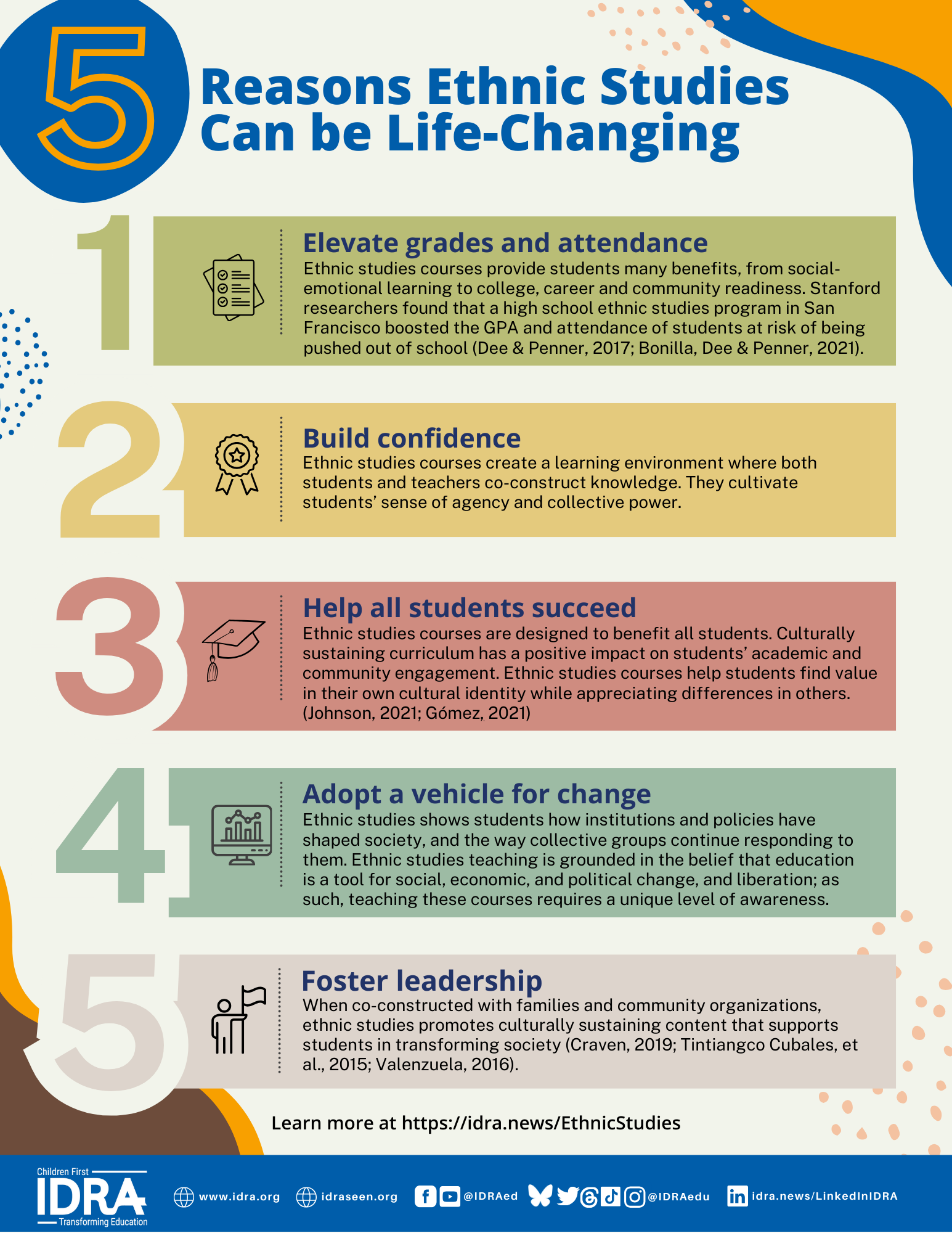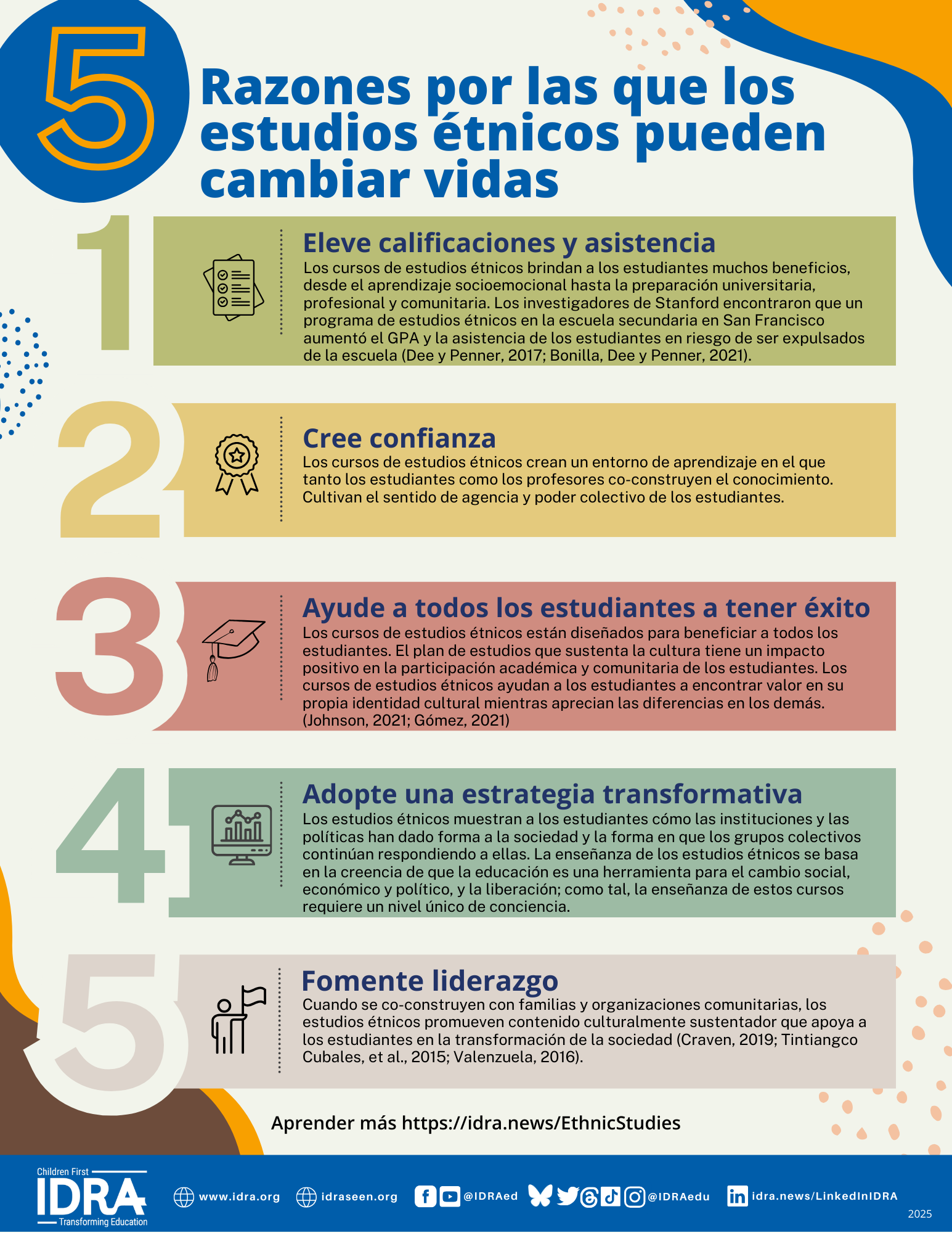Ethnic studies courses provide students many benefits, from social-emotional learning to college, career and community readiness. This infographic outlines some examples (citations are below).
See bilingual PDF version. Also see our infographic set on ethnic studies in Georgia.


Citations
Bonilla, S., Dee, T.S., & Penner, E.K. (September 2021). Ethnic studies increases longer-run academic engagement and attainment. Proceedings of the National Academy of Sciences, 118 (37) e2026386118; DOI: 10.1073/pnas.2026386118
Craven, M. (November 13, 2019). African American Studies Course Will Have a Significant and Positive Impact on Students Across Texas, testimony. IDRA.
Dee, T.S., & Penner, E.K. (2017). The Causal Effects of Cultural Relevance. American Educational Research Journal, 54(1), 127-166.
Gómez, I. (May 2021). Visions and Provisions – Planning for K-12 Ethnic Studies Implementation. IDRA Newsletter.
Johnson,P. (May 2021). Culturally Sustaining Instruction Requires Culturally Sustaining Leadership. IDRA Newsletter.
Tintiangco-Cubales, A., Kohli, R., Sacramento, J., Henning, N., Agarwal-Rangnath, R., Sleeter, C. (2015). Toward an Ethnic Studies Pedagogy: Implications for K-12 Schools from the Research. The Urban Review, 47(1), 104-125.
Valenzuela, A. (2016). Growing Critically Conscious Teachers: A Social Justice Curriculum for Educators of Latino/a Youth. New York, N.Y.: Teachers College Press, Columbia University.



